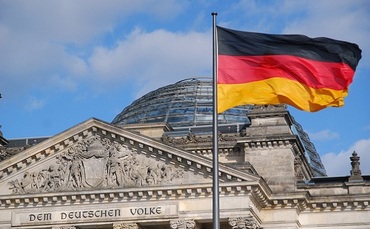Nations are exploring further sanctions to halt spiralling costs, and reduce Russian revenues as the US continues to drive a policy that would place a cap on the price of Russian oil.
Recessionary fears accelerate as the four-month war in Ukraine continues to push up the price of oil and gas, and food.
The move comes as nation leaders condemn the "indiscriminate attacks on civilians and civilian infrastructure" that "have caused immeasurable human suffering and loss of life".
Yesterday Russia launched a missile strike on a shopping mall in the Ukrainian city of Kremenchuk.
Leaders have pledged financial, humanitarian and military support for Ukraine "for as long as it takes".
Eurozone inflation hits record high amid soaring food and energy prices
France is one nation calling for a global scale-up of oil production, and has suggested moderating prices via higher output, bringing in production from parts of South America and the Middle East, subject to US sanctions.
Officials say a cap could be enforced through curbing of European services, including insurance on Russian oil shipments.
Opec and its allies agreed at the start of the month to accelerate production throughuot July and August.
In a G7 statement on support for Ukraine, the consortium said: "We will further reduce Russia's export revenues by taking appropriate steps to further reduce dependency on Russian energy, as articulated in the Energy section of our Communique.
"We will continue to coordinate on tariff measures on imports from Russia and explore possible pathways in line with our respective legislation to use the revenues to assist Ukraine where applicable."
President Biden is undertaking a trip to the Middle East next month.


